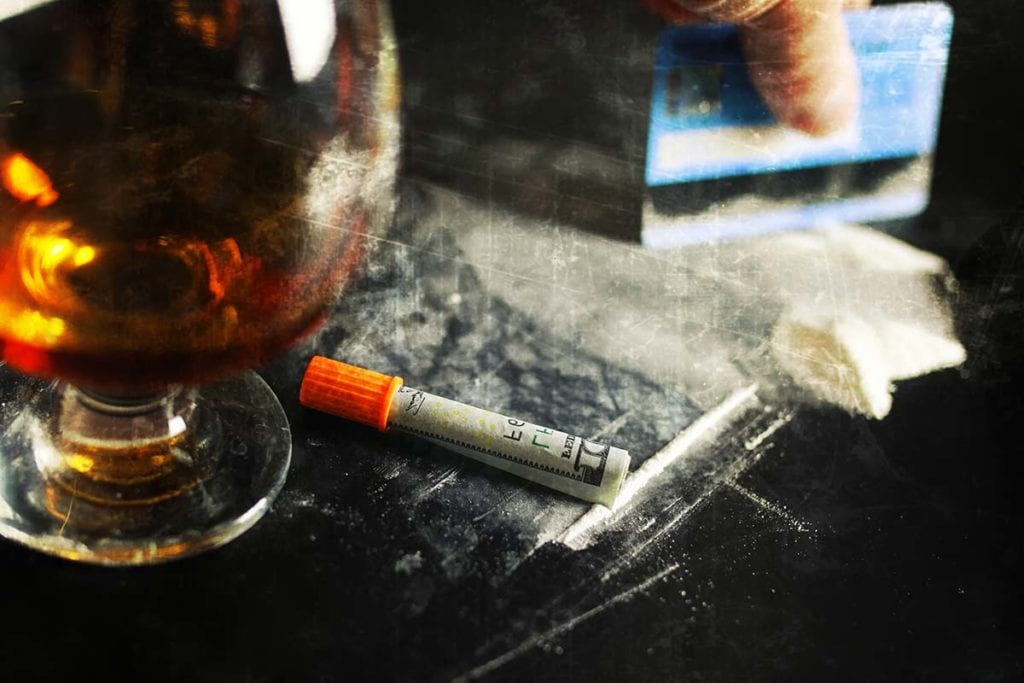Can you mix cocaine and alcohol? According to the National Survey on Drug Use and Health (NSDUH), there were about 1.5 million cocaine users across the U.S. in 2017, and 14.1 million adults had an alcohol use disorder. Many cocaine users mix the drug with alcohol, but that doesn’t mean it’s the right health choice. What are the dangers of mixing cocaine and alcohol? Mixing cocaine and alcohol is riskier than using either substance on its own. If you’re using cocaine and alcohol together and want to stop, look for women’s or men’s addiction treatment rehab centers that can help, like Promises Behavioral Health.
What leads to the dangers of mixing cocaine and alcohol?
Cocaine is a stimulant, and alcohol is a depressant. These medical terms refer to the effect the substances have on your central nervous system. Both substances have potent effects on your brain and body. Both substances can have neurotoxic (poisonous to the brain) and cardiotoxic (poisonous to the heart) effects.
Dangerous effects of drinking alcohol (alone) include damaging your vital organs, including your heart, liver, pancreas, and brain. Excessive alcohol use can lead to high blood pressure, heart muscle damage, and heart rhythm problems. The more you use alcohol, the higher your risk of dependence and addiction. Alcohol depresses your central nervous system and can contribute to depression. Very often people with alcohol use disorders are in need of inpatient depression treatment programs to treat the underlying cause of addiction.
Negative health impacts of cocaine can include heart muscle damage, heart rhythm problems, and increased heart rate and blood pressure. Cocaine use can also cause moodiness, anxiety, paranoia, and panic attacks.
How does your body respond to the dangers of mixing cocaine and alcohol?
Your body metabolizes new substances when you use cocaine and alcohol at the same time. The most powerful substance your body creates from alcohol and cocaine is cocaethylene. Cocaethylene stays in your body longer than alcohol or cocaine on their own. Its effects are longer lasting and stronger than either substance by themselves. This is often very addictive and dangerous requiring professional help from a polysubstance abuse treatment program to reach recovery.
What kind of health emergencies can the dangers of mixing cocaine and alcohol lead to?
A 44-year old woman who had been using cocaine and alcohol together was admitted to Michigan State University’s emergency room with a severe stroke. The left side of her brain was swollen, and doctors opened her skull to relieve the pressure and save her life. She also suffered a heart attack. After she was stabilized, doctors discharged the woman to a nursing home, partially paralyzed and unable to speak.
Some of the risks of using alcohol and cocaine together include:
- Stroke and brain hemorrhage
- Increased likelihood of heart attack
- Risk of heart failure
- Heart arrhythmias (irregular beating)
Don’t believe myths about the dangers of mixing cocaine and alcohol.
Some people believe that using a stimulant like cocaine with a depressant like alcohol will reduce the negative impact these substances have on your body and brain. The opposite effect is true. Cocaethylene can stay in your body for days or even weeks. It is only created by your body when you use alcohol and cocaine together. Cocaethylene could have an 18 to 25 times greater risk of sudden death than cocaine.
Both cocaine and alcohol can affect your heart and blood pressure, leading to a greater risk of heart attacks and strokes.
If you’re mixing alcohol and cocaine, you can get help and recover. You can benefit from treatment, including:
- Residential treatment
- Outpatient treatment
- Dual diagnosis treatment
- Men’s addiction treatment centers
- Women’s addiction treatment centers
You can find all of these treatment resource methods and more at Promises Behavioral Health. If you’re mixing alcohol and cocaine or other drugs, you can get help for polydrug abuse. You can heal your body and mind and improve your health and well-being. Contact us at 844.875.5609 to find out how you can start your recovery today.

